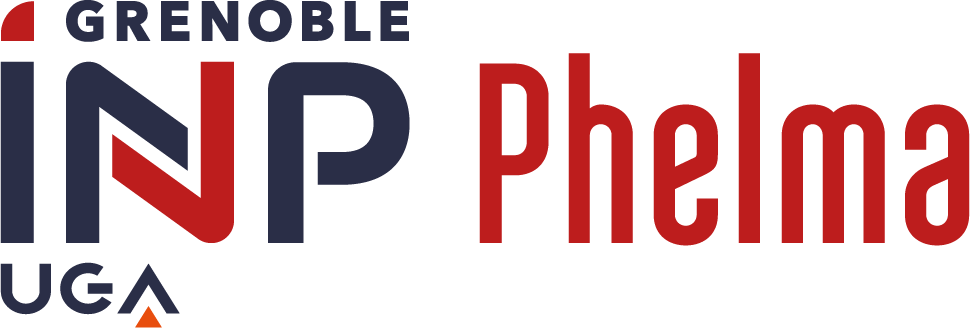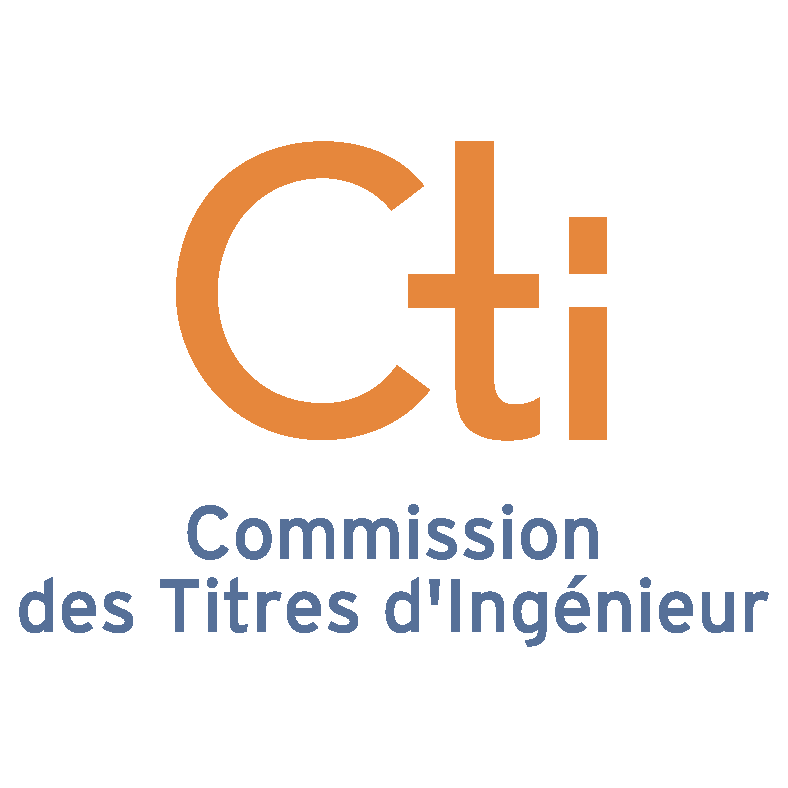FAQ - Career opportunities / salaries / jobs
Opportunities / salaries / jobs
The median gross salary for Phelma graduates is €37,000 excluding bonuses
– Computer activities and information services
– Scientific research and development
– Energy
– Consulting or engineering firms, Independent design offices
– Microelectronics
– Automotive, aeronautical, naval and railway industries
– Education, research
– Others
Targeted occupations
production, operations, maintenance, testing, quality, safety
engineering, studies and technical advice
research and development
customer relations (marketing, sales)
education and public research
information systems
project or programme management
Sectors of activity
Transport: Automotive, Avionics, Rail
energy : Electrical energy, Nuclear energy, Energy conversion and storage
chemical, electrochemical, pharmaceutical, oil industry, metallurgy
microelectronics, Surface treatments and coatings
water, waste management
service sector: engineering, IT, business
Trades
Design engineer, R&D, production, … in industry
Academic researcher
Sectors of activity
Transport (automotive, avionics, rail…)
Lighter structures
Reduction of energy consumption,
Security
Nuclear energy
Increasing the life span of plants
Development of 4th generation reactors
Renewable energy
New materials and processes to make cheaper and more efficient photovoltaic cells
effective
Micro and nanotechnologies
Miniaturisation
Reliability of integrated circuits and microsystems, packaging
Leisure and health
Performance
Lightness
Security
Academic career/research
At universities, research institutions, teaching students or managerial position. Scientist with high commercialization
awareness, knowledge, and competences; someone who can communicate effectively the commercial value of their
scientific research.
Resource industry
SMEs in chemistry, exploration, green energy, machinery and plant construction, metal working industry, ceramics,
environmental economy (R&D, product development, management, production, marketing and sales). Expert or manager whose actions and decisions influence the innovation output, value creation, and performance of the
company.
Freelancer and entrepreneur
Create your own business or become a consultant.
Wider society
Science journalism, consulting, project development and management, advisor to policy makers, administration,
specialist agencies, media etc.
Professions ciblées
Engineers graduating from the programme will mainly work in :
research and development engineer in companies in the nuclear power sector,
project manager in the same companies,
operational engineer at the energy production centres,
safety engineer in the organisations in charge of nuclear safety,
as a researcher in academic laboratories.
Sectors of activity
The major companies in the nuclear power sector and the safety organisations in charge of this field.
Targeted occupations
RD Engineer
Design Engineer,
Process Engineer
Researcher.
Secteurs d’activité
Micro and nanotechnology
Telecommunications and IT,
Machine building industry,
Apparatus and instrument industry,
Textiles, optics and photonics industry,
Medical and pharmaceutical industry,
Renewable energy.
Targeted occupations
Engineers coming from this field will mainly work in the following functions:
Research and Development Engineer
Production Engineer
Test and Quality Engineer
Sectors of activity
Biomedical Instrumentation, Biology, Human-Computer Interface, Medical Imaging and Therapy,
Nanotechnology, artificial intelligence and learning.
Parallel complementary training (possible via the Manintec elective semester or via the double degree course)
of a course from the Institute of Business Administration) may lead to careers in consulting, management
marketing and sales.
Targeted occupations at exit :
Data-scientist
Expert engineer in signal / image processing, designer of complex algorithms in various
applications (multimedia, speech, audio, telecom, environmental monitoring, energy monitoring,
health, …)
R&D Engineer
Development Engineer,
Technical support engineer
Test and Validation Engineer
Project Manager
Consultant
Business creator
Teaching/research (after thesis)
Sectors of activity :
Information technology,
Civil/military communication,
Transmission systems in the field of telecommunications,
Automotive,
Aeronautics,
Spatial,
Biomedical,
Acoustics,
Search for water, oil, natural resources,
Observation and measurement and safety of natural environments,
Non-destructive testing,
Digital sound/image processing, entertainment, multimedia.
Targeted occupations
Design engineer for microelectronic circuits and embedded systems
Optoelectronic circuit and system design engineer
Microelectronics Manufacturing Engineer
Electronic Systems and Simulation Engineer
Optronics engineer
Design engineer in digital and analogue electronics
Test and Characterisation Engineer
Sectors of activity
High performance microprocessors and multiprocessors, hard disk drives,
Mobile multimedia applications: PDAs, laptops, GSM, 3G-4G, MP3, GPS, cameras,…
Home entertainment (HDTV, Set topbox, video games,…)
High security applications (banks, transactions, etc.)
Automotive, avionics, space, military
Wireless telecommunications (mobile phones, radar, radio astronomy, satellites, internet protocol)
Wifi transmission, antenna, RFID…)
Wired telecommunications (optical fibre, LAN, waveguide, etc.)
RFID
Integrated solutions for biochips
This training can serve as a basis for further specialisation in the field of industrial marketing and
project management.
Targeted occupations
The micro and nanoelectronics design professions are many and varied. As shown in the figure
, the field of design can be grouped into six professions:
the systems engineer will determine the most appropriate integrated system architectures for the application
by distributing the stresses in an optimal way between the different components of the system.
the engineer who designs analogue circuits will be interested in designing circuits whose
operation is in the continuous or time-sampled domain.
the digital design engineer will work with digitised signals and design circuits that
will process logic signals.
the software-hardware interface engineer will optimise the signal processing by distributing it in an
optimal way between software processing (programming in a microprocessor) and software processing (programming in a microprocessor).
wired logic operators.
The CAD support engineer will implement and adapt software tools to design
circuits in a given technology.
the test engineer will implement the electrical measurement methodologies of the circuits produced, develop
test programs and design test interfaces (cards).
Sectors of activity
Rapidly expanding fields are concerned: the automotive, aeronautical, radio communication and telecommunications industries.
biomedical, security, home automation and the whole emerging industry of connected objects.
ACCENTURE / ALLEGRO DVT / ALTEN / ALTIS / ALTRAN / AMADEUS / ARCELORMITTAL / APERAM / APPLIDIUM /
ARKEMA / ARM FRANCE / ASSYSTEM / ASTEK / ATOS / AUBARY / AUSY / BIOMERIEUX / BOSCH / CAPGEMINI / CEA /
CEGELEC / CORYS T.E.S.S. / CS COMMUNICATION & SYSTÈMES / DASSAULT / DEBIOTHEC / DECATHLON / DOLPHIN
DESIGN / EADS / EDF / ELSYS DESIGN / ESSILOR / FRAMATOME / FRESENIUS KABI / GDF SUEZ / GENERAL ELECTRIC /
IRSN / LAFARGE / LYNRED / MBDA / MELEXIS / MICHELIN / NATIONAL INSTRUMENTS / NAVAL GROUP / NXP /
ORANGE LABS / ORANO / RIO TINTO / ROLLS ROYCE / SAFRAN / SAINT-GOBAIN / SCHNEIDER ELECTRIC / SNCF /
SOGETI HT / SOITEC / SOLUTEC / SOPRA GROUP / ST MICROELECTRONICS / TECHNICATOME / TECHNIP / TELEDYNE
E2V / THALES / TRONICS / VULCAIN…
+70% of graduates are hired at the end of their studies. The others find their job in 2
months or so. 97% are in permanent employment or in their first job, 6 months after leaving the school
In semester 5, all of Phelma’s programmes offer research courses leading to a double degree.
a Master’s degree in research and to start a career in applied research in partnership after graduation
with industry, or in basic research in public research laboratories. This first
The professional experience of a “junior researcher” is carried out in the framework of a doctoral thesis (3-year
contract) leading to the degree of doctor. Surveys on the professional integration of doctoral engineers clearly show
that holding a doctorate facilitates access to positions in research and development in large
companies. The doctorate is also a requirement for research or teaching positions
in public or semi-public laboratories. The engineer-doctor profile also has many
international outlets (equivalent to the PhD in Anglo-Saxon countries).





